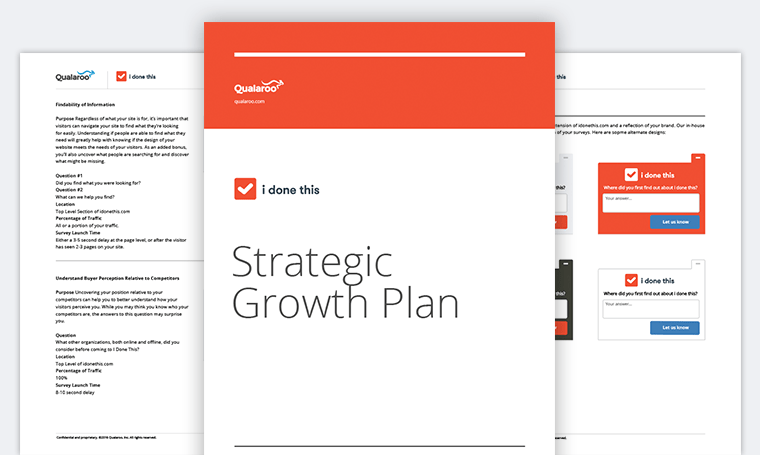We’ve talked a lot about the benefits of Conversion Rate Optimization. As a business practice, CRO does a remarkable job of improving Key Performance Indicators (KPIs) for an array of website metrics across all types of businesses. But today, we want to talk about one kind of conversion in particular—leads.

Conversion Rate Optimization is essential for B2B businesses who need to develop and nurture leads as part of their sales process. By implementing a systematized approach to optimization, every lead-generating channel performs better and becomes more cost effective over time.
On the surface, the conversion you’re looking to optimize is pretty straightforward—visitors filling out your lead form and clicking that submit button to send their details on to your team.
But what if visitors are leaving before they fill out your lead gen form?
Here’s a handful of mistakes you should avoid when building your conversion rate optimization plan in order to lower your bounce and exit rates and generate more website leads for your business.
1. You’re optimizing for leads, not potential customers.
In other words, you’re worried more about surface level conversions that how a visitor who completes a lead form correlates to becoming a customer. First, focus on the complete conversion, from visit, to lead, to trial, and finally purchase.
In order to do this you’ll want to be able to track your entire funnel from the source of the incoming click (such as ad copy, public relations, a webinar, etc.), the landing page and conversion path they came through, and ultimately the conversion to a customer. You can do this with analytics packages like KISSMetrics, Mixpanel and others.
When you optimize for potential customers, you focus your optimization efforts on what really matters. You make your sales team more efficient, improve the quality of your best performing leads, and reduce wasted money on campaigns that have good surface level metrics, but rarely convert to paying customers.
2. Your call to action is too vague.
What do you really want users to do once they hit your page? While “Submit” might be the technical thing visitors are doing with the form, it’s likely there’s something else they’re trying to accomplish. So that little word, “submit” might be hurting your conversions.
Quicksprout found that buttons labeled “Submit” saw a nearly 3% decrease in conversion. Use more descriptive buttons that align with what the visitor is actually trying to accomplish, and reduce fear about committing to something unknown. CrazyEgg has more great tips on writing effective calls to action.
3. You’re asking for too much.
When collecting visitor information, Unbounce recommends using between 3 and 5 fields on your forms. If your lead gen form has substantially more, start by eliminating fields that ask for “Nice-to-Know” (as opposed to “Need-to-Know”) information.
You want to balance out the amount of information collected between your goals of getting more qualified leads over just more leads in general. Depending on your business model and offering, you may find that fewer fields increase page-level conversion but bog down the sales pipeline with unqualified leads.
As with everything here, you’ll want to develop a systematic plan to test your hypotheses.
4. You haven’t earned their trust.
Trust seals can go a long way toward making visitors feel comfortable with handing over their information. But, as KISSMetrics points out, just be sure your trust seals actually mean something. When OrientalFurniture.com added the BuySafe guarantee—which protects against identity theft and guarantees delivery up to $500—visitors were 7.6% more likely to buy.
These types of endorsements come in more than one flavor. Even if you don’t have certifications that apply to your business, you can use third party validation to build trust. Logos of well known customers, reputable media outlets, and reviews can all build social proof to improve conversion.
5. You’re blindly following “best practices.”
This last one might seem a little contradictory considering we’ve giving you what might be considered a list of best practices to follow, but the most important thing to remember in your CRO efforts is to test, test, and test again.
Don’t take anything for granted. Every business and audience is different. And what works for one person might actually hurt you. Sometimes, adding third party endorsements can actually hurt conversions. Similarly, trying to pack every conversion tactic onto a single landing page to in order to conform to the “above the fold” or “three click” rule, you might just be doing more harm than good.
The key to successful lead gen is to have a solid CRO strategy. Rather than changing random elements based on current best practices, it’s critical you gather data about your site, form hypotheses based on that data, and then build a plan that attempts to prove or disprove those hypotheses.
Make CRO Work for You
With a CRO strategy in place, you’ll be able to test assumptions one by one to evaluate what’s working well and what could be working better.
If you’d like an overview of the conversion rate optimization basics, read our free CRO Guide. You’ll learn which metrics to keep an eye on, how to design a CRO plan that’s right for your business, and which tools you need to get the job done.
And if you already have a CRO plan in place but want to uncover new insights to improve performance, try Qualaroo free for two weeks. From uncovering pinch points in your conversion funnel to identifying hidden objections, Qualaroo is one of the hardest working tools in your CRO toolbox.
FREE. All Features. FOREVER!
Try our Forever FREE account with all premium features!






